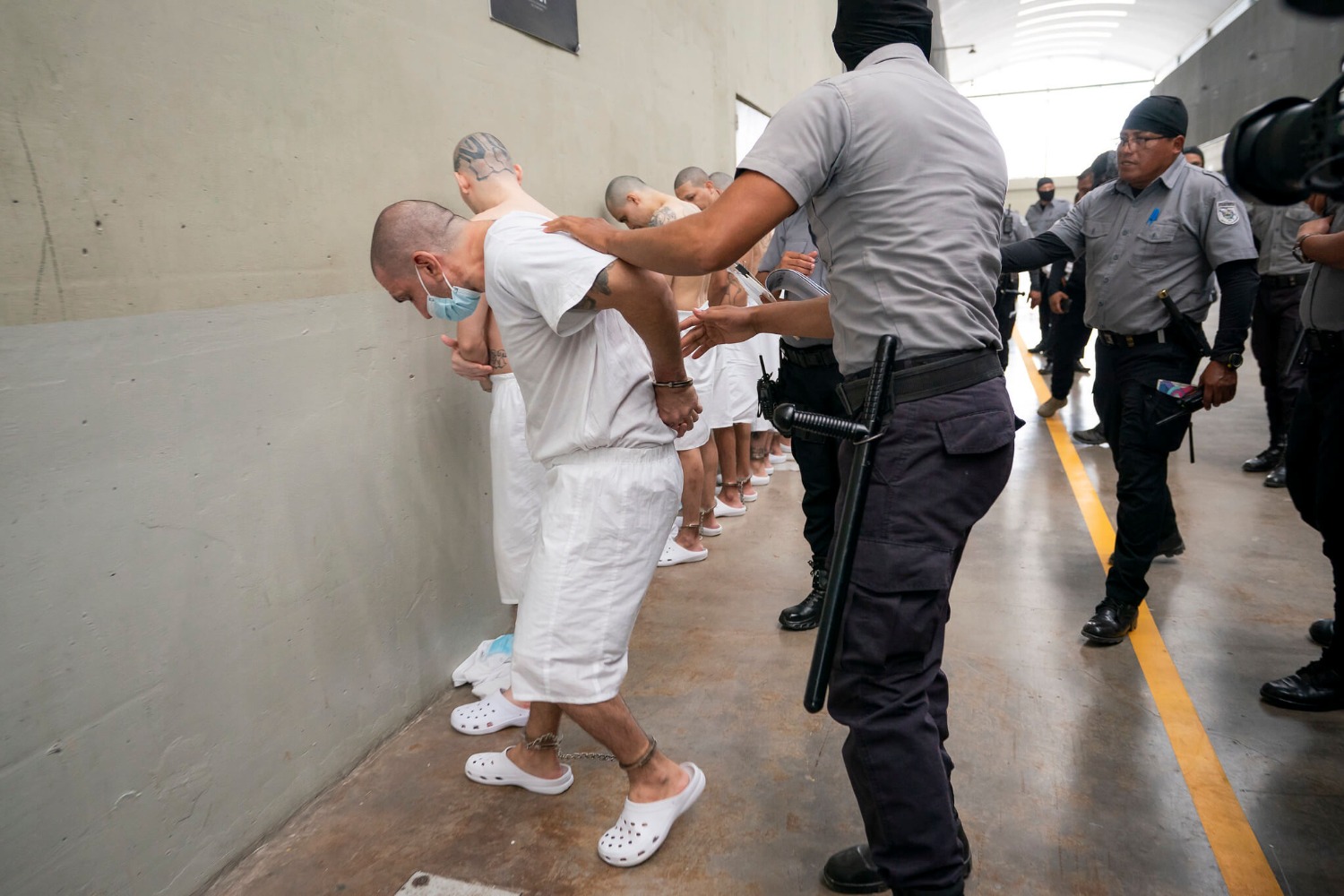A Primer on Legal Developments Regarding Private Military Contractors
Recent events again have raised the issue of accountability for alleged human rights violations by Blackwater, the most notorious of the private contractors deployed by the United States in the Iraq war. On June 11, trial finally got underway of four Blackwater guards accused of shooting indiscriminately into traffic in Nisour Square in Baghdad, in 2007---and killing 17 civilians.
Published by The Lawfare Institute
in Cooperation With

Recent events again have raised the issue of accountability for alleged human rights violations by Blackwater, the most notorious of the private contractors deployed by the United States in the Iraq war. On June 11, trial finally got underway of four Blackwater guards accused of shooting indiscriminately into traffic in Nisour Square in Baghdad, in 2007---and killing 17 civilians. Just days later, the New York Times reported that two weeks before the shooting, a Blackwater manager had threatened the life of the State Department investigator who was looking into the firm’s operations in Iraq. According to the Times, rather than sanction its contractor, the State Department instead sent its investigator packing. The newly released report from the investigator sums it up: “Blackwater contractors saw themselves as above the law.”
As Iraq plunges into civil war, and as recriminations fly about why the U.S. didn’t leave a residual force when it withdrew, those with long(ish) memories surely will recall: a major reason Iraq refused to accept immunity for leftover U.S. soldiers was the country’s earlier experience with military contractors, who had been granted broad legal protections. Under rules issued by the U.S.-led Coalition Provisional Authority, contractors couldn’t be prosecuted in Iraqi courts. While such immunity is standard for military personnel, it is also typically accompanied by a regular system of reporting and accountability for those who commit crimes. But military contractors in Iraq weren’t subject to equivalent procedures and generally managed to escape prosecution. For example, the contractors accused of participating in torture at Abu Ghraib have never been prosecuted, although the junior military personnel involved were court martialed. Even Nisour Square – the most high-profile of such cases – has taken seven years to come to trial, in large part due to missteps by the government.
Reports of contractor misconduct, and concern that such incidents would undermine the legitimacy of using contractors, together galvanized the international community to address the regime governing contractors in war zones and other areas of instability. By and large, these remain a work in progress. Here is a short primer for Lawfare readers on recent international legal developments regarding contractors.
The Montreux Document and the Code of Conduct
In 2008, 17 countries signed a document on existing international law applicable to private military and security companies operating in areas of armed conflict. Named for the Swiss town where it was signed, the Montreux Document is not a legally binding instrument, but more like a restatement. It was meant to counter the claim that contractors operated in a legal vacuum. But it is limited to situations of armed conflict and doesn’t take account of myriad other areas of instability, in which armed contractors operate and which also pose human rights risks. The Montreux Document contains a useful annex on Good Practices (the term “Best Practices” was avoided as being too prescriptive), which specify ways in which the states hiring contractors, as well as the states where contractors are headquartered and operate, can ensure greater accountability.
Unfortunately, the entirely sensible good practices identified in the Montreux Document have had limited practical effect. Among the countries that are the “home” states of contractors, only Switzerland has passed comprehensive legislation that attempts to put Montreux into practice; South Africa, another signatory, has long banned private companies and its own citizens from providing military services, but its law has proved difficult to enforce. A report prepared by a global team of academics, experts and activists to evaluate progress five years after the Montreux Document found that although some of the good practices had been incorporated by the U.S. in contracting procedures, far too little attention was paid to human rights risks in deciding when to use private contractors generally, and in selecting particular firms.
Several countries home to private military and security contractors---and also such contractors’ biggest clients---have backed efforts to develop a voluntary code of conduct. So have major firms worried about the reputational risk posed by cases like Nisour Square. The goal of the International Code of Conduct for Private Security Service Providers, which was signed in November 2010, is to raise standards across the industry. The Code contains guidelines for firms operating in war zones and “complex environments,” a term for areas experiencing unrest or instability.
While the Code itself was signed relatively quickly, it has taken several years to develop an operational framework for its administering entity: the International Code of Conduct Association. The terms were negotiated by three sets of stakeholders: governments, private contractors, and civil society organizations. Their differences were predictable. The contractors wanted the most minimal system they could get away with; civil society groups pushed for robust human rights protections, which focused on actual behavior in the field rather than headquarters-level procedures. Thus far, over 700 companies have signed on to the Code and the Association is negotiating what will be needed for a company to be certified as compliant.
Those involved in developing the Code hoped that adherence to it would become part of government contracting standards, thus incentivizing companies to join and take seriously its requirements. So far, to the best of our knowledge, only Switzerland and the United Nations have taken this step. The U.S Department of State has stated its intention to do so for its umbrella diplomatic security contract and the United Kingdom strongly encourages its contractors to sign on. Although recent experience with industry codes of conduct has been disappointing, it is too soon to judge the success of this one.
A Multilateral Treaty Regulating Contractors?
While the Montreux Document and the Code of Conduct enjoy broad support among the home states and employers of contractors, the rest of the world has by and large been skeptical of their efficacy. Many countries instead support the approach proposed by the U.N. Mercenaries Working Group: an international convention setting out minimum licensing standards and stronger laws for holding contractors responsible for human rights violations. In 2010, a majority of the Human Rights Council voted to convene inter-state consultations on the need and feasibility of such a treaty. But progress has been stymied because of a lack of consensus about whether a treaty is needed at all.
One of the issues that the draft convention tries to address is remedies in the event of human rights violations by a contractor. Access to judicial recourse is a cornerstone of the framework proposed by the United Nations Special Rapporteur for Business and Human Rights, John Ruggie, which is supported by broad swath of countries across the development and political spectrum. The countries where contractors operate rarely have the wherewithal to prosecute them and home countries rarely do so either. The 2013 report on Montreux’s implementation faulted the “legal barriers to accountability” created by the United States’ failure to enact a comprehensive legal framework for criminal responsibility of contractors and their personnel. And, as noted in previous Lawfare posts, U.S. courts’ approach to civil liability for contractors is still very much in flux.
While an international convention may seem like a pipe dream in the face of strong opposition from key players, the proposal underscores the need for a multi-pronged approach military and security contractors. Contractors are typically transnational firms. They frequently operate abroad, in close contact with civilian populations, and in environments posing significant human rights risks. But the legal regime only partially accounts for such factors. The Code of Conduct may well raise standards in the industry, but it cannot address the issue of legal accountability for human rights abuses; by the same token, the Montreux Document is confined to armed conflict situations only, and has not spurred national re-examination of legal frameworks for contractors.
There are, in other words, important substantive gaps left to fill. Even though the campaigns in Iraq and Afghanistan are drawing to a close, private military and security contractors continue to operate in other conflict situations, and in projects seeking to develop natural resources. The issue thus deserves serious and sustained attention in both national and international fora.
***
Daniel Stone, an intern at the Brennan Center for Justice, co-authored this post with the Brennan Center's Faiza Patel---who recently served as Chairperson and Rapporteur for the United Nations Working Group on the Use of Mercenaries.
Faiza Patel serves as co-director of the Brennan Center’s Liberty and National Security Program, which seeks to ensure that our counterterrorism laws and policies respect constitutional values and promotes transparency and accountability in national security matters. She has testified before Congress opposing the dragnet surveillance of Muslims, developed legislation creating an independent Inspector General for the NYPD, and organized advocacy efforts against anti-Muslim laws and policies. She has authored and co-authored eight reports: Extreme Vetting and the Muslim Ban (2017), Trump-Russia Investigations: A Guide (2017); The Islamophobic Administration (2017); Countering Violent Extremism (2017), Overseas Surveillance in an Interconnected World (2016), What Went Wrong with the FISA Court (2015), Foreign Law Bans (2013), A Proposal for an NYPD Inspector General (2012), and Rethinking Radicalization (2011). Ms. Patel’s writing has been featured in major newspapers including The New York Times and The Washington Post, and she is a frequent commentator on national security and counterterrorism issues for print, televisions, and radio outlets. She is a member of the Board of Editors of the legal blog Just Security. Born and raised in Pakistan, Ms. Patel is a graduate of Harvard College and the NYU School of Law.




